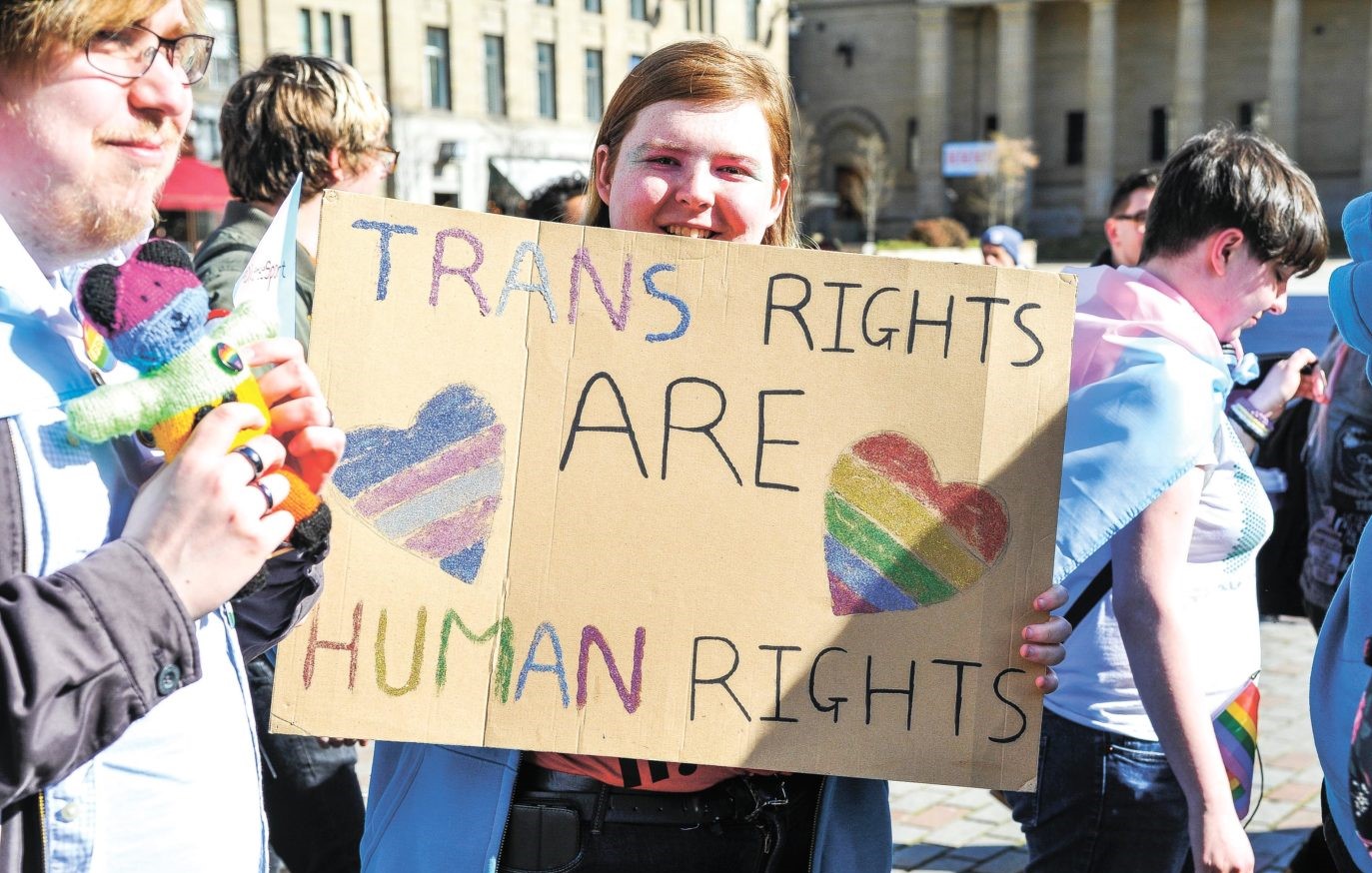Ray Goodspeed (Leyton and Wanstead CLP – personal capacity) concludes his two part article. Part one can be found here.
As we have argued, gender is not inevitably tied to physical, biological sex characteristics. The fact that western society has constructed two genders around the two physical sexes does not mean that other societies in different times and places have not constructed a different arrangement.
From Pakistan to native American cultures, alternative ways of seeing the categories or number of genders have been woven around the existence of two physical sexes. The question is, why can’t the categories of man or woman (or neither) in our society, be equally flexible?
Nature or nurture?
It is a commonly held view among sections of the trans community that they are “born trans”. Many gay and lesbian people have the same view about their sexual orientation. It is easy to see why these arguments are attractive. In a situation where you are begging for tolerance and acceptance from a hostile and oppressive society, not being able to “help it” is a useful defence.
But there is no clear evidence of a genetic cause. In spite of the occasional newspaper headline announcing the discovery of a single gene for this or that, it is rare to find a segment of DNA that corresponds directly even to physical diseases, let alone mental states and behaviour. The processes are much more complex than that. A particular gene or array of genes may, in collaboration with a set of pre-natal or later life circumstances, operate to pre-dispose a person to a particular personality trait but not necessarily cause it directly. Some behaviours may be purely social in origin, others may be the result of a subtle interplay between genetic and social factors – nature and nurture.
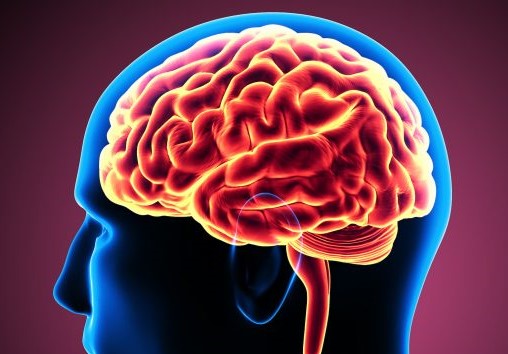
Some studies have noted a correlation between some aspects of trans people’s brains and the brains of the gender they identify as – between a trans man’s brain and that of a cis man, for example. But these studies are not at all conclusive and do not prove any causal link, simply a correlation that may develop during the trans person’s lifetime. My own instinctive view is that both homosexuality and transgender identities are psycho-social constructs, but as a materialist I am always open to further scientific discoveries and proofs.
The main point is that, whatever the cause of transgender identities, trans men and women deserve full equality, justice and respect. Everything else is just an interesting academic debate.
Transitioning
A trans person’s gender identity does not depend on medical treatment or surgery. A trans woman – someone born a man (AMAB) but identifying as a woman – does not become a woman by having medical treatment. Her gender identity exists before, or even without, transitioning. Similarly, such treatments or surgery do not make a trans man (AFAB) a man.
Transitioning can involve different processes. Social transitioning refers to changing aspects of how you present yourself: clothes, behaviour, hairstyle, etc. Medical transitioning using hormone treatments (testosterone or oestrogen or equivalents) can change some secondary sexual characteristics.
Finally, a variety of different surgical procedures can be undergone. These can include “top surgery” (to the chest) or “bottom surgery” (to the genitals) as well as other kinds of cosmetic surgery. Transitioning helps trans people to look, and sound, more like the gender with which they identify (or just less like the one they don’t want to be), and help them to pass (i.e., to not be identified – “clocked” – as trans by others).
Nearly all trans people either transition to some degree or would want to, if it were possible. However, many simply can’t, either because of oppressive social norms or laws where they live, or the absence of affordable health care, even (or especially!) in a rich nation like the USA. Medical insurance schemes often refuse to cover it.
It is not at all unusual to see trans people crowdfunding – begging, effectively – to fund their transition, and many can never afford it. In the UK, the NHS does provide hormone treatment and gender-reassignment surgery, but the waiting lists for counselling and for medical procedures can be several years long. The rich, as usual, have no such problems.
Huge benefit
The overwhelming international medical and psychological consensus is that affirmation of their gender identity, and socially or medically transitioning, is of huge benefit to the mental health of trans people. That should be glaringly obvious, and it is also very moving if you know trans people and see them go through the process.
The regret rate, a measure of how often a transition is later regretted, can be measured in different ways, depending on whether social or only medical transitioning is included, but it is very low, perhaps as little as one per cent. That means that one per cent or fewer “detransition” after medical intervention, and it is clear from research that many of those – possibly even a majority – detransition because of lack of family support, discrimination, social disapproval, etc, rather than deciding that they are not trans after all.
It is obviously in no-one’s interest for people to transition ‘by mistake’ and then detransition. What possible motivation could anyone have for wanting that? Apart from the obvious individual personal tragedy, it is damaging for the whole trans and non-binary community. Full, free and timely access to counselling services, and psychological and medical professional advice, is vital to ensure that correct, well-informed decisions are taken.
Puberty blockers and trans children
The issue of children transitioning has become another focus of the deliberate whipping up of wild fears. Children up to puberty only transition, if at all, socially. In the UK, hormones are generally not proscribed until the age of 16 as a minimum, but generally later, and surgery does not take place until adulthood is reached, at the earliest.
Adolescents are sometimes prescribed drugs, so-called “puberty-blockers”, which can slow down or delay the development of secondary sexual characteristics. These are reversible, so that if you stop taking them, puberty recommences at the normal pace. They have been used safely for decades to treat non-trans children with “precocious puberty”.
In recent court case, a detransitioner, Keira Bell, backed by conservative pro-family campaigners and their “feminist” allies, sued the NHS for allowing her to take puberty-blockers (at 16) and, later, hormones and then to have top surgery (as an adult) – in other words for providing what she convinced them that she needed. As a result, the High Court effectively banned the use of puberty-blockers by the NHS for under 16s, without an individual court order!
Catastrophe
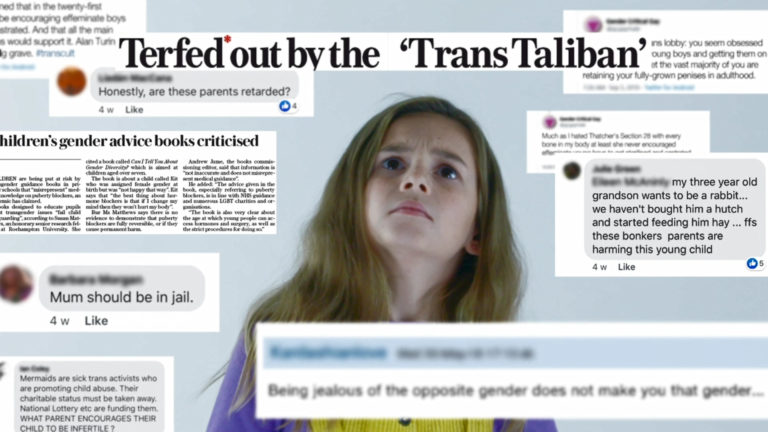
This was a catastrophe for trans kids who were threatened with suddenly going through puberty even though they had already socially transitioned, with all the damage to their mental health that would mean. It also risked setting the precedent that would prevent under-16s consenting to any serious medical treatment, or to abortion. A subsequent court decision did, however, allow prescription of blockers with parental consent, but the battle is not over.
Another line of attack against trans rights is the notorious fake research, disowned even by the university that published it, that invented so-called “Rapid Onset Gender Dysphoria”, identifying it as a fad spread by influencers and peer group pressure. This masterpiece was produced without talking to a single “girl” (ie trans boy), but using as interviewees self-selecting volunteers from an anti-trans parents’ website!
Of course, it is possible in some cases that young people start to question their gender identity but end up deciding that they are not trans after all. That is why counselling is necessary. But for those who are serious about being trans, the realisation is rarely, if ever, sudden. It only appears that way because young people are often struggling with it for a long time, are in denial or are actively hiding it. The relatively greater increase in “girls” (trans boys) rather than “boys” (trans girls) transitioning is because of the lack of knowledge that being a trans man was even possible before. Until recently, all the publicity was about male to female “transsexuals”, and it is also so much easier for trans boys to just dress and act in a masculine way than for trans girls to present as feminine. The stigma of being feminine is very much greater – sexism in action!
Far from children being ‘fast-tracked’ to transitioning, the waiting times for children at gender identity clinics (GIDs) are often two years for a first appointment (!) followed by other lengthy delays.
Self-identification and the backlash
In 2017 a modest (Tory) government proposal to simplify the process of obtaining a Gender Recognition Certificate (GRC) suddenly became a huge moral panic, led by the right-wing media, and boosted by some feminists. In this process a tiny, marginalised minority, one of the most oppressed and victimised groups in society, were presented as part of a powerful “trans activist lobby”.
But where does the power actually lie? All the right-wing press in Britain are transphobic, and even The Guardian carries transphobic material. The BBC recently gave an award to the wealthy author, J K Rowling, for a transphobic essay! What can the trans community and their supporters do except protest and take to social media to complain? Where is their power?
Rowling and others did receive appalling threats and sexist abuse on social media, and that has no place in the labour movement or in the debate in general, but trans people, especially women, receive the vilest abuse on a daily basis and can be humiliated and abused routinely from childhood and often even from within their own families. That is never mentioned by their critics.
Every extreme action or ludicrous comment from a pro-trans person, is blown up and presented as representative of trans people in general, while transphobes are framed as innocent victims of a bullying “cancel culture”. Their bigoted views are re-labelled “gender critical” concerns. Racists in the US brand themselves “race realists” in the same fashion.
Gender Recognition Certificates
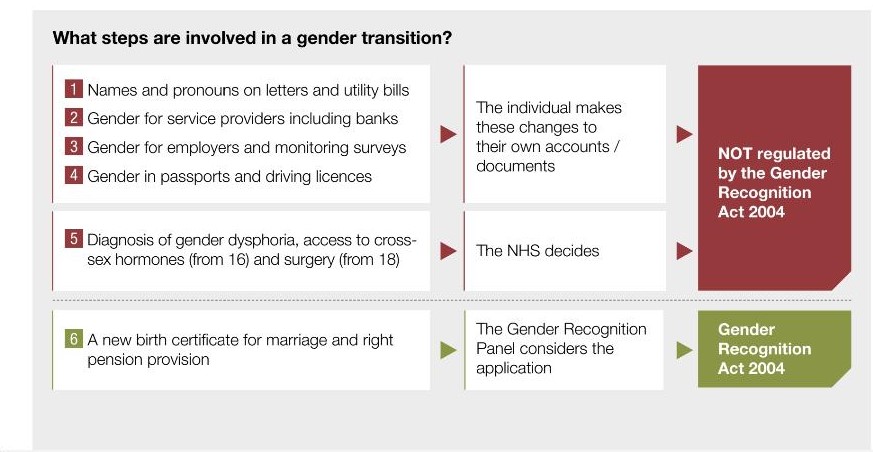
What then is a Gender Recognition Certificate? It is just a legal document that allows you to change your official legal gender on birth certificates, etc, when you want to get married, for example. You don’t even need it to change your passport. Many, even most, trans people don’t bother to get one. Only 4,910 have been issued since 2004! It currently requires a medical report and proof that you have lived in your gender for two years and intend to do so for the rest of your life. The medical report has never required any evidence of surgery.
The proposed law change was to simplify the forms, to make it cheaper, and to rely on a person’s own witnessed legal declaration of their identity, rather than that of a doctor. This is referred to as “self-ID” and has been blown up out of all proportion by anti-trans activists, pursuing their ideological agenda.
We are told that passing this change will abolish or erase the concept of ‘woman’, that it will lead to physical risk to women from predatory “men” in women’s spaces, such as toilets, changing rooms, women’s refuges and prisons. But a GRC has never been demanded in a public toilet or changing room.
Trans women (again – they are the focus) have been using women’s facilities for several decades, barely being noticed, let alone ever being asked to produce a certificate. Ironically, one result of this feverish atmosphere is that more masculine looking cis women are starting to be challenged! If predatory men want to assault women in a toilet, they won’t wait for a legal document to do it! There is no evidence that allowing trans women to use women’s toilets leads to an increase in assaults on women. And if ultra-masculine trans men have to use the “ladies”, does that not give more of a green light to any cis man to use them too?
The truth is that transwomen are many times more likely to be assaulted in the “gents”, or even in the “ladies”, than they are to assault cis women. Transphobic activists don’t really care about the certificate; they just believe that trans women are men, and always will be, regardless of any certificate or surgery (which they sometimes call “mutilation”).
Women’s refuges
Trans women have also been using women’s refuges for a very long time and have even worked in them. They are very often the victims of domestic or sexual violence or rape themselves, yet they are portrayed as hulking predators. These institutions are experienced at managing risk from any potential client and have safeguarding procedures in place. They do not generally ask for a GRC in any case. The opposition to self-ID is ideological, not practical or based on safe-guarding. The main threat to women’s refuges is not trans women, but the savage cuts in local authority grants caused by the Tory government.
It is the same fear-mongering about women’s prisons. One celebrated case that is quoted over and over, is that of Karen White, a transwoman, who in 2018 assaulted two women prisoners. It is ‘celebrated’ precisely because it is so rare. There is a major issue of sexual assaults in women’s prisons – but they are usually perpetrated by male prison officers, who are strangely rarely mentioned in this regard – or else by other women prisoners.
The aim should be to keep all prisoners safe, including male prisoners, who can also be sexually assaulted. Procedures to deal with violent or sexual offenders need to be put in place and staffing levels increased to deal with rising level of violence inside all prisons. We also need to look at why so many people are in prison at all.
Inclusive language
Further fake outrage is generated by some people over the use of inclusive language. There are those who have trouble calling a trans woman ‘she’, a trans man ‘he’ or a non-binary person ‘they’. Is that a really a serious problem, or just petty-minded prejudice?
The word ‘cis’ they also sometimes find insulting or comical, when it is literally just the opposite Latin word to trans, and is only used in a context that differentiates between them, not in routine usage. Women can still be just women. Forty years ago, some men resented being called ‘straight’, but time moves on and nowadays it is common parlance.
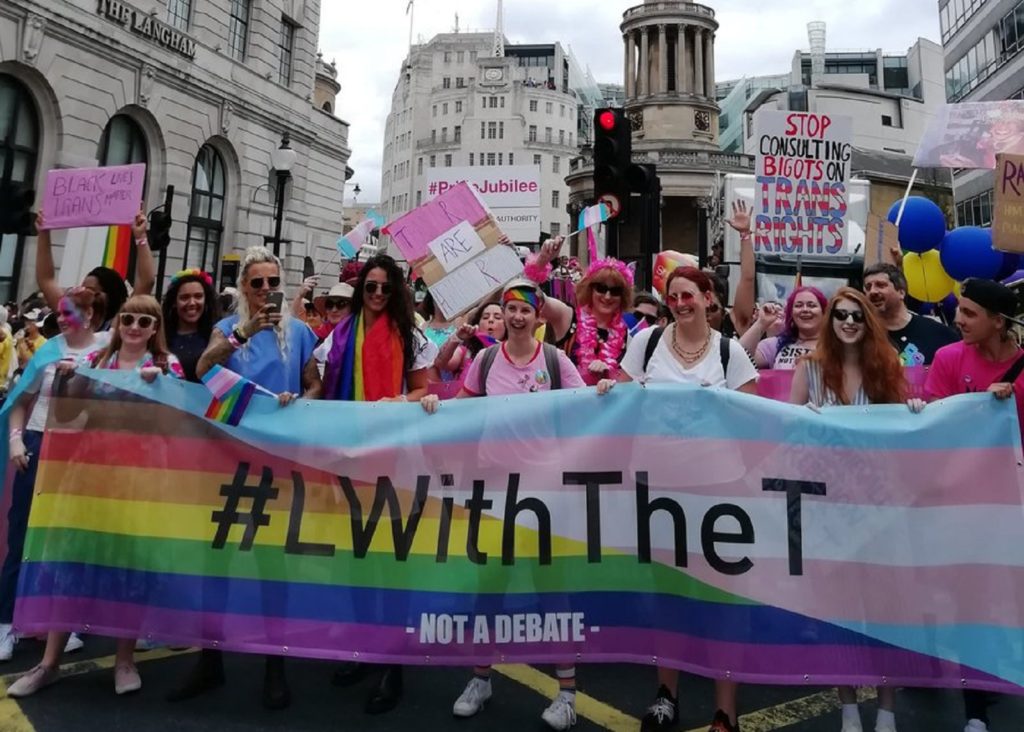
In specific clinical contexts, phrases like “pregnant people” or “people who menstruate” are used in advice leaflets, etc. Again, this has no relevance in daily life outside of the clinic in question. No-one wants to prevent anyone referring to “pregnant women”, but in actual fact, trans men can still get pregnant, or get cervical cancer and trans women can still get prostate cancer.
In the USA, the latest battlefield for the Republican Party culture warriors, is around trans women and girls in sport, especially in school sport. Dozens of laws have been introduced in state legislatures. Of course, this is a genuinely complex area, but educational and sporting bodies should be guided by scientific research into the actual benefits that biologically male athletes have, and how that is affected by puberty blockers or hormone therapy over time, etc.
At the current Olympic games, there is a trans woman weightlifter from New Zealand, who has been taking female hormones for eight years, and complies with International Olympic Committee rules. Practical solutions can be found that are not based on ideological objections and prejudice. It is not the case that legions of trans women are poised to all become star athletes and destroy women’s sport.
All of these scare-stories need to be consistently resisted by socialists and trade unionists. Pandering to such ideas, however temporarily popular they may be, will just encourage further attacks.
Forty years ago, I was fighting inside the labour movement for rights for gay men and lesbians, and fighting for their right to be included in the working-class movement. In the UK at least, many of those battles have been won. We should not have to wait another 40 years for trans people to take their rightful place alongside us!

